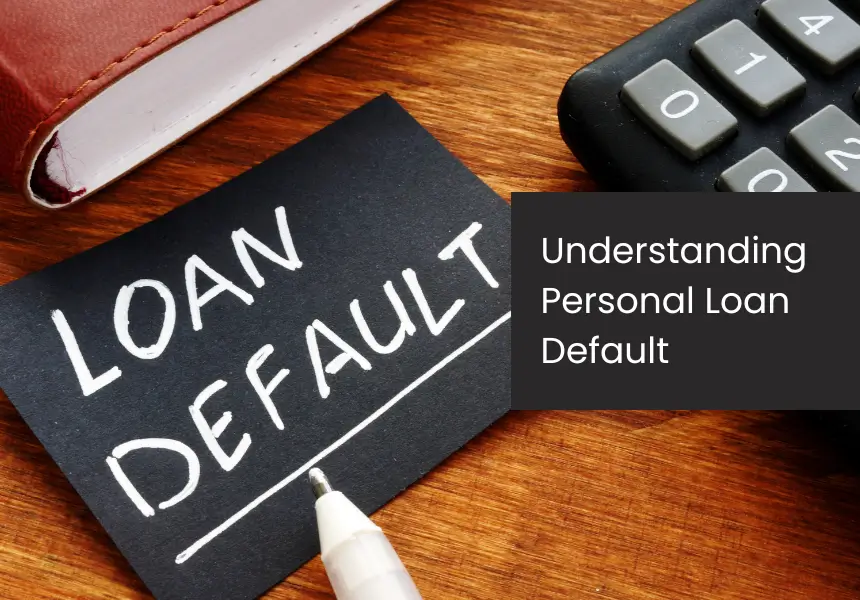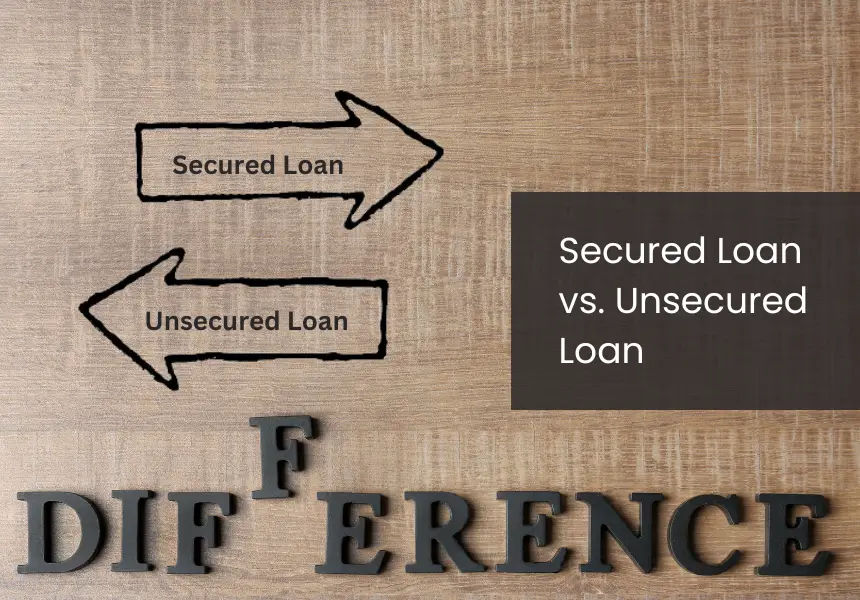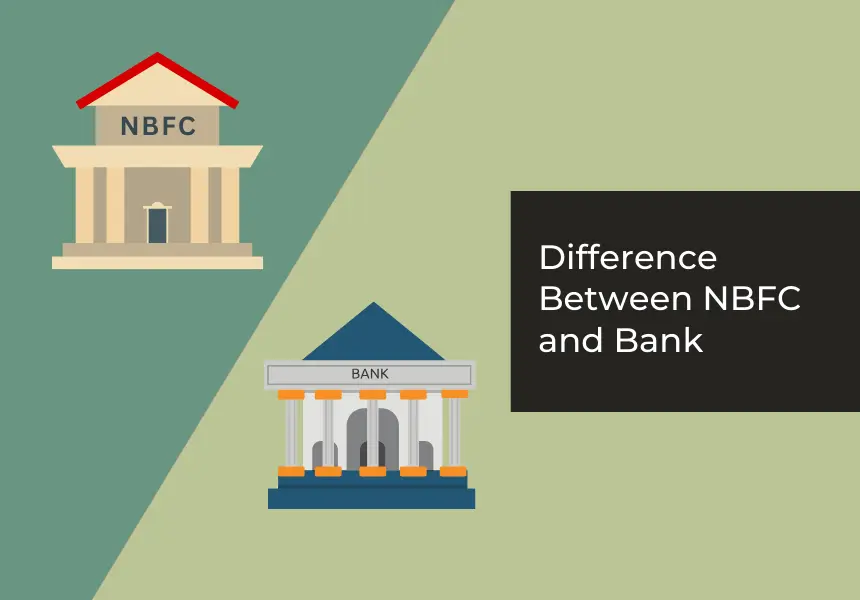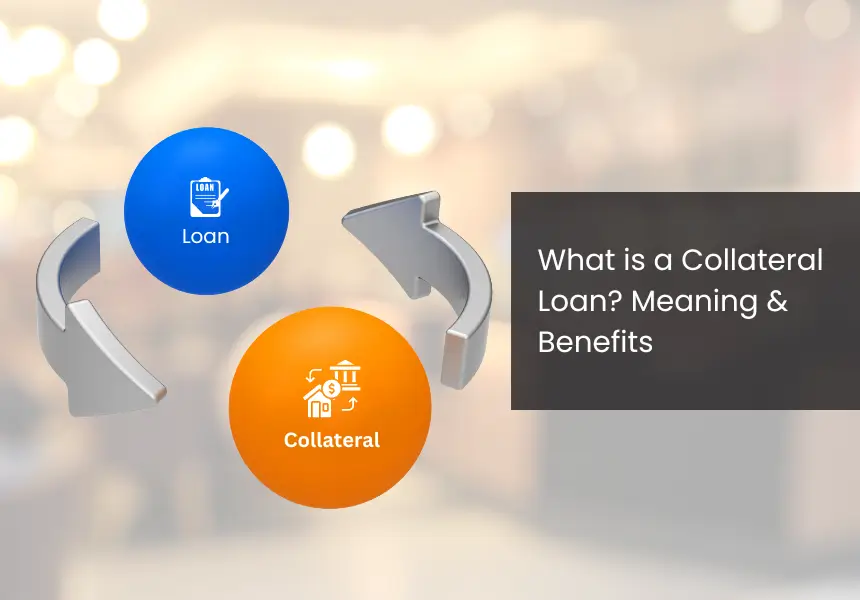
A personal loan can be beneficial in a variety of situations, such as medical expenses, consolidating debt, planning a wedding, and more. However, due to certain unexpected circumstances, it can become difficult to keep up with the loan payments, leading to the risk of default.
Defaulting on a personal loan can affect your financial health, credit score, and ability to borrow in the future. But what exactly happens when you default on a personal loan? How can we manage such a challenging situation?
Here, we have explained what loan defaulting means and how you can avoid such a situation.
What is Meant by Loan Default?
A loan default is when you don’t pay your debt within a specified period, breaking your loan agreement’s terms.
Although missing a payment is not ideal, paying a few days late usually doesn’t lead to serious long-term effects. However, if your payment is overdue by 90 days or more, the lender may classify the loan as in default—though the exact timing can vary depending on the lender’s policies.
How Can You Avoid Loan Default?
Avoiding defaulting on your loan helps maintain your financial health and can prevent long-term consequences. Below are some steps that you can take to prevent a loan default:
- Communicate with Your Lender: If you find yourself struggling to make payments, the first step is to reach out to your lender. Lenders are often willing to work with borrowers to find a solution and may offer extensions, temporary payment reductions, or other assistance to help you stay on track.
- Consider Debt Consolidation: If you’re managing multiple debts and find it challenging to keep up with payments, debt consolidation might be a good solution. With the help of debt consolidation, you can combine multiple debts into a single loan with affordable monthly payments, usually at lower interest rates. This can make managing your finances simple and reduce the risk of missing payments. However, ensure you have a solid plan to repay the consolidated loan to avoid further financial difficulties.
How Does Loan Default Impact Your Credit?
Missing loan payments can lead to loan default, significantly affecting your credit score. Your payment history is the most important component of your credit score, and a default may mark you as a risky borrower.
However, even before you default on your loan, multiple missed payments start damaging your credit. Lenders usually report a missed payment after 30 days, but the timeline may vary depending on the lender.
Defaulting can also affect your credit utilization ratio. For example, if your credit card is closed due to default, you lose the available credit from that card. This reduction in available credit can cause your credit utilization ratio to increase, which can further damage your credit score.
What to do in case of a Personal Loan Default?
Below are a few ways that you can use to exit a personal loan default:
1. Reach Out to Your Lender
The first thing you should do is contact your lender. Open communication is key. Discuss your current financial situation and explore options like restructuring the loan with lower payments. Lenders are often willing to work with borrowers who are facing financial problems to find a solution.
2. Analyze Your Finances
Take a close look at your personal finances to identify the underlying cause of the default. You must then create a detailed budget that tracks your income and expenses. This will help you monitor your spending, allowing you to allocate more funds toward your loan payments.
3. Catch Up on Missed Payments
You should make up for the missed payments as soon as possible. This will help you get back in good standing with your lender and avoid further penalties. If catching up all at once isn’t feasible, discuss setting up a payment plan you can manage.
4. Consider Loan Consolidation
If managing multiple debts is becoming too difficult, consolidating your loans might be a better option. A debt consolidation loan combines your outstanding debts into one monthly payment, in some cases with a lower interest rate or extended repayment period. This option may be more accessible if you have a good credit history or can secure a cosigner.
5. Seek Professional Advice
It is advisable to consult with a financial advisor who can provide personalized advice on rebuilding your credit and establishing long-term financial stability. With their advice, you will be able to manage your debts and improve your financial habits.
Conclusion
A default on a personal loan can damage your credit score, increase financial strain, and lead to potential legal action. However, it is important to address the situation immediately by openly communicating with your lender, carefully planning your finances, and seeking professional advice to regain control over your finances and work toward rebuilding your credit.
Frequently Asked Questions
How long does it take for a loan to be considered in default?
The timeline for a loan to enter default varies by lender, but it typically occurs after 90 to 180 days of missed payments. The exact timeframe should be specified in your loan agreement.
What is loan restructuring?
Loan restructuring is when a lender agrees to change the loan terms to make it easier for the borrower to manage their payments.
What are my options if I can’t make my loan payments?
You must contact your lender immediately if you cannot make loan payments to discuss other alternatives. You can also explore debt consolidation or credit counseling.
How long does a loan default stay on my credit report?
A loan default can remain on your credit report for up to seven years from the date of the first missed payment.
Can I get a personal loan after defaulting on one?
It can be challenging to obtain a new personal loan after defaulting, as lenders view you as a higher-risk borrower. If you do qualify, you may face higher interest rates and stricter terms.








